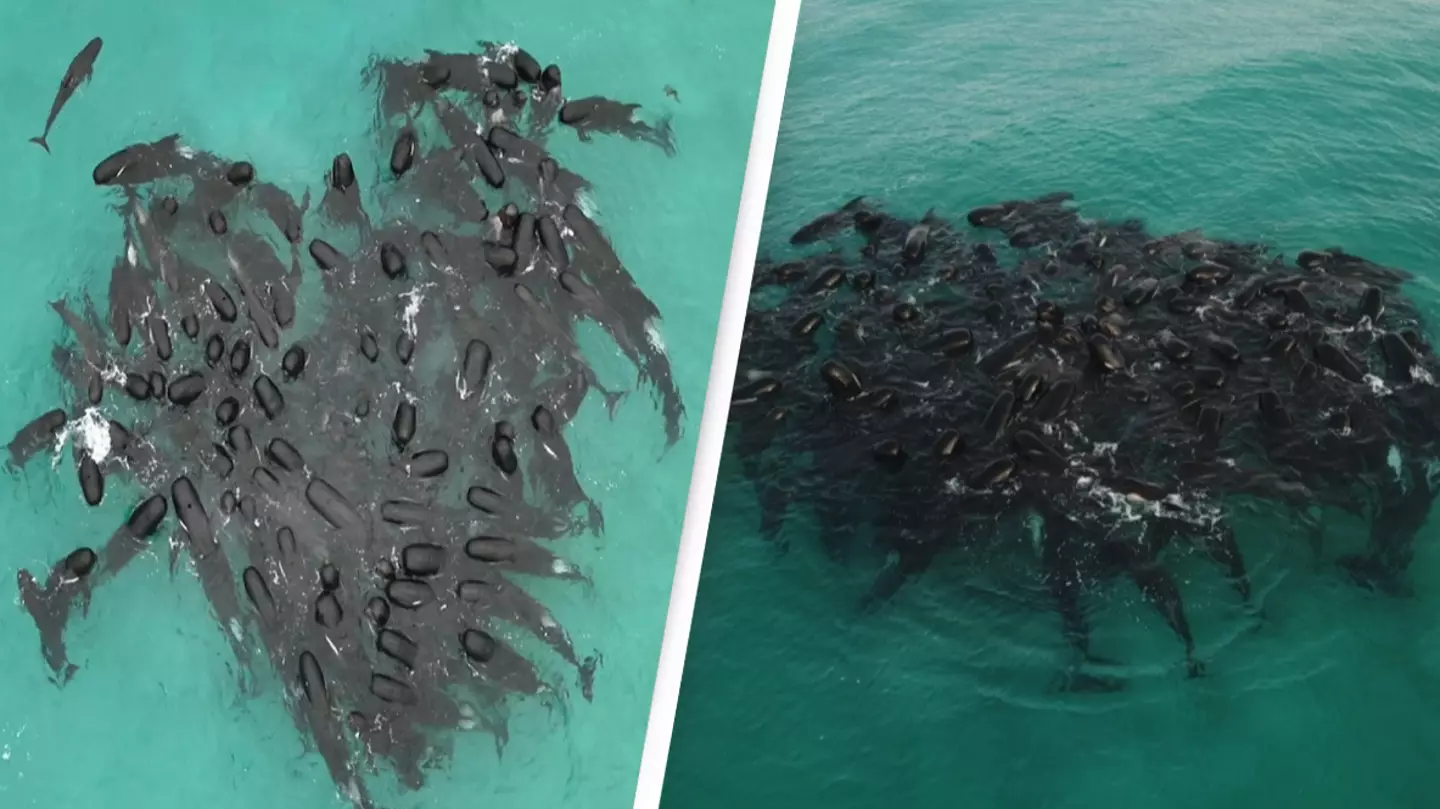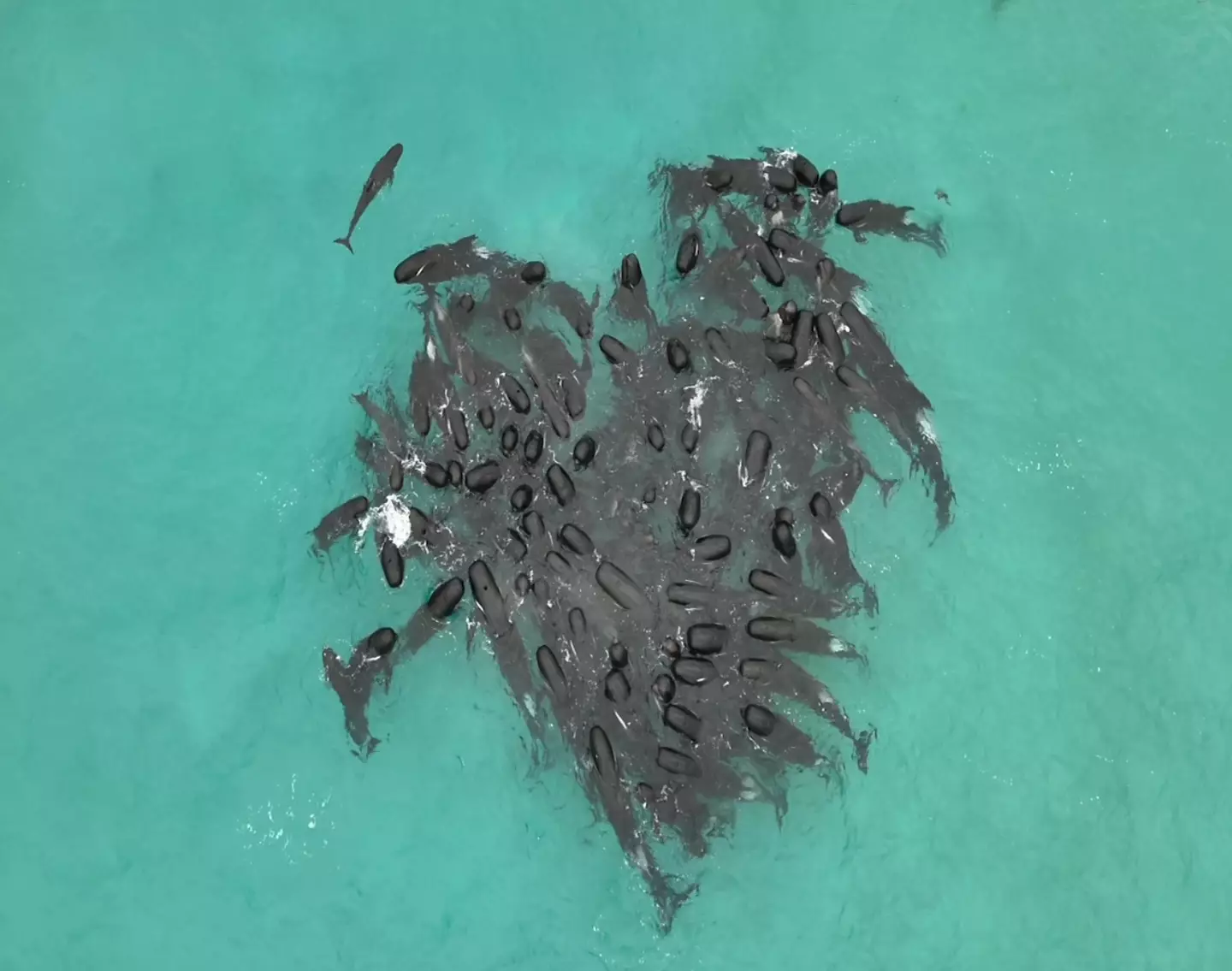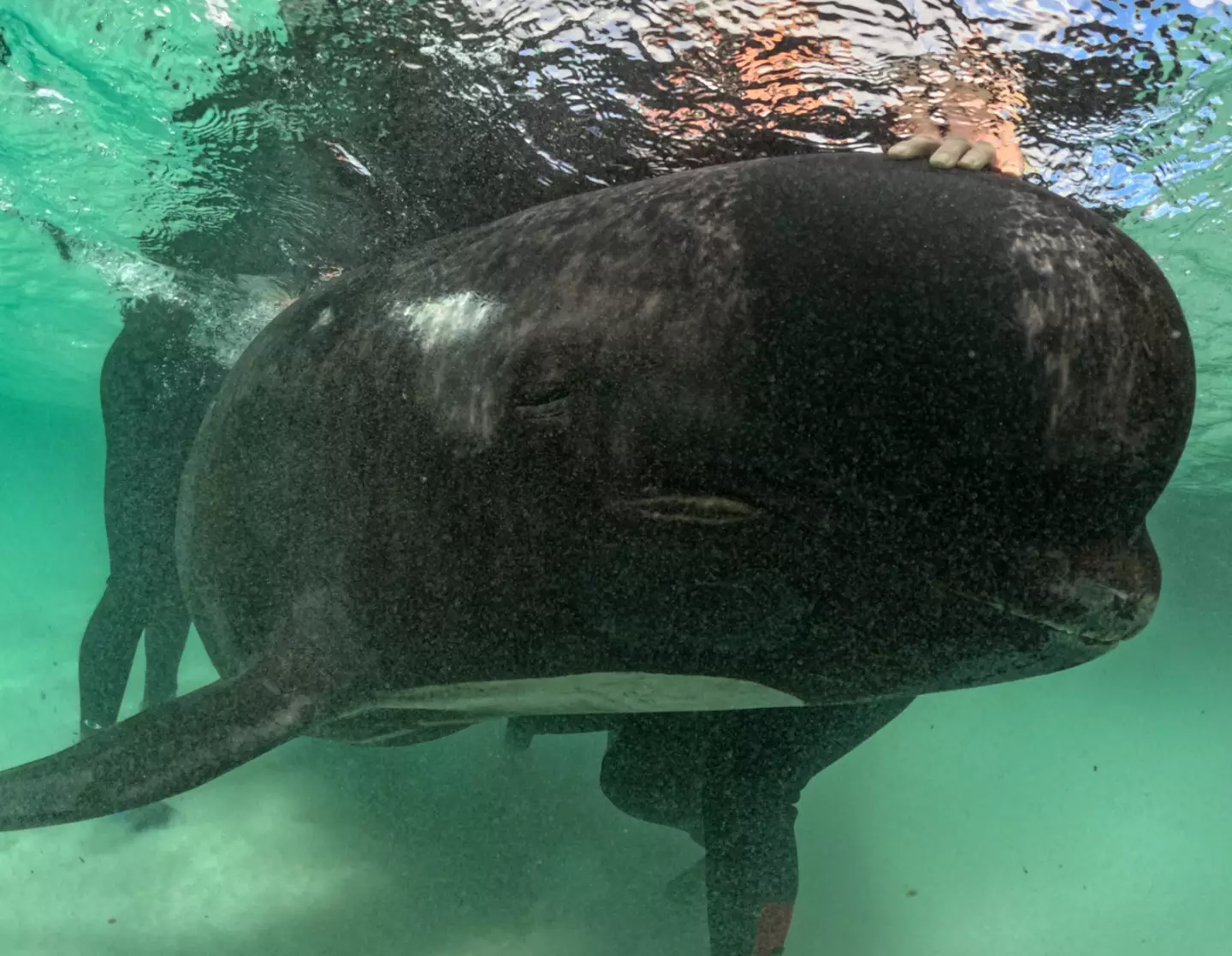
Incredible images taken off the coast of West Australia showed a pod of almost 100 whales huddling together before a huge disaster unfolded.
The amazing scenes were caught near the shore off Cheynes Beach in southern WA on Tuesday (25 July), where dozens of whales had gathered.
The Parks and Wildlife Service in Western Australia shared images of the whales on Facebook, explaining that the DBCA Parks and Wildlife Service Albany District attended the scene after receiving reports of a pod of long-finned pilot whales grouped together.
Advert
Images from the scene showed the whales forming a heart shape in the water, as DBCA (Department of Biodiversity, Conservation and Attractions) officers watched on to monitor the pod’s behaviour and movements.
"We ask the public to keep their distance and refrain from approaching the pod via drones or vessels," the wildlife service said.
Unfortunately, the scene didn't stay beautiful for long as the service soon added an update to say the pod had started to strand on the beach.

DBCA officers quickly worked to try and manage the incident, with numerous volunteers offering their support to help the whales.
A team of experienced staff were also sent to the scene, including Perth Zoo veterinarians and marine fauna experts.
Marine biologist Dr Vanessa Pirotta told Sky News the pod was an 'incredible sight', but admitted experts have 'no idea' why the whales deliberately came up on to the beach.
“I personally have never seen anything like this. Pilot whales are largely an offshore species. They are very social. They hang out together. But like this? This is super unusual," she said.
The response teams had specialised equipment, including vessels and slings, to try and rescue the whales, but sadly an update shared at 8.15am today said 51 whales had died during the night.
"Parks and Wildlife Service personnel are working in partnership with registered volunteers and other organisations to try to return the remaining 46 whales to deeper water during the course of the day," a post on Facebook read.

"Thanks so much for the messages of support.The Parks and Wildlife Service has been overwhelmed with hundreds of offers of help to rescue the stranded whales, and we now have enough registered volunteers."
The service urged members of the public to stay away from the beach for 'safety reasons', explaining: "The priority focus of the Incident Management Team is to ensure the safety of staff and volunteers and the welfare of the whales.
"The response zone has a range of hazards, including large, distressed and potentially sick whales, sharks, waves, heavy machinery and vessels. "
The latest update from the wildlife service thanked the 250 volunteers and 100 staff from the Parks and Wildlife Service and other agencies for their work, and said it had succeeded in keeping 45 pilot whales alive throughout the day.
Dr Pirotta told ABC some possible reasons for the stranding may be that the whales gathered around one sick member of the group, got lost due to navigational problems, or moved to avoid orcas hunting nearby.
Topics: Australia, World News, Animals